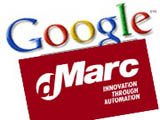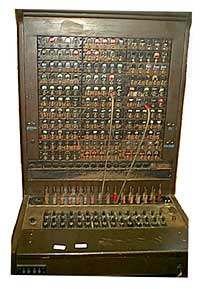 So, how does better telephone customer service interface with radio? First, step outside of your "radio box" and stop thinking like the radio person you are. When Google recently bought dMarc Broadcasting, it should have sent out a shock wave to our business. Google is thinking about different ways and architectures for selling and marketing radio inventory that look nothing like the way stations send out waves of sales reps to pitch cost per point and :30s and :60s. Google will bring an outside perspective to commercial selling, placement, and effectiveness.
So, how does better telephone customer service interface with radio? First, step outside of your "radio box" and stop thinking like the radio person you are. When Google recently bought dMarc Broadcasting, it should have sent out a shock wave to our business. Google is thinking about different ways and architectures for selling and marketing radio inventory that look nothing like the way stations send out waves of sales reps to pitch cost per point and :30s and :60s. Google will bring an outside perspective to commercial selling, placement, and effectiveness.
Similarly, think about a company like Google, Apple, or Microsoft buying a radio group. And imagine them asking the company about how stations interface with listeners. Group heads would explain that hundreds of people call the station every day with requests, questions, and other inquiries. And when asked about how these calls are handled, broadcasters would say something like this:
"We have three lines that come directly into the studio. Sometimes they’re answered, and sometimes they aren’t. Sometimes the jocks ‘busy them out’ so they don’t have to be bothered speaking with listeners and what we call ‘contest pigs.’ And for the most part, the jocks haven’t been trained as to how to handle calls or deal with listener questions or problems."
Then the new owners might ask, "Well, aren’t these listeners very important, the people who are so passionate about the station they take the time to call? And isn’t it possible they might have one of those Arbitron diaries or PPM devices?"
And the answer would be, "Well, of course, but our air talent is too busy to effectively handle the volume of calls that come in. Thus, they either get a busy signal, the phone rings incessantly with no answer, or they’re treated in a variety of different ways depending on who’s on the air at that time."
Ouch.
 Back in the day, the ABC Owned FM Stations used to have something called "The Community Switchboard." The idea was that when you called the station, a team of interns was available to take your call, give you information about the station, local charities, and other community activities. The phones were promptly and courteously answered during most hours of the day.
Back in the day, the ABC Owned FM Stations used to have something called "The Community Switchboard." The idea was that when you called the station, a team of interns was available to take your call, give you information about the station, local charities, and other community activities. The phones were promptly and courteously answered during most hours of the day.
Today, the economic realities of running radio stations and the cavalier attitudes of broadcasters toward listeners have created a customer relations nightmare. Where else in business can you hear busy signals when you call, or have to put up with phones that are never answered? What other business treats customer service as more than a bother instead of an opportunity to engender loyalty and positive feelings?
This may not be the biggest problem facing commercial radio today, but it’s emblematic of our overall "inside" thinking. How hard would it be to re-establish telephone answering systems that would personally handle calls, take requests, invite callers to join the email database, and make them feel good about picking up the phone and calling?
It would be a way for a local station to stand out – in a good way. And as we’ve said before in this space, it would be a positive way to differentiate a station from iPods, AOL, XM, and T-Mobile.
- Media And Technology In 2025: Believe It Or Not! - April 18, 2025
- In Radio, You Just Never Know - April 17, 2025
- The Secret To Making A Great Podcast (And Great Radio) - April 16, 2025




Last time I checked radio is a 24 hour business…but how many times is a “customer relations” person nowhere to be found…that’s voice tracking!